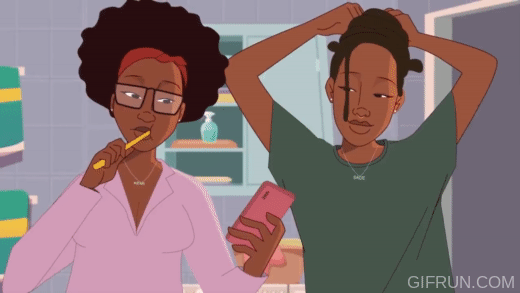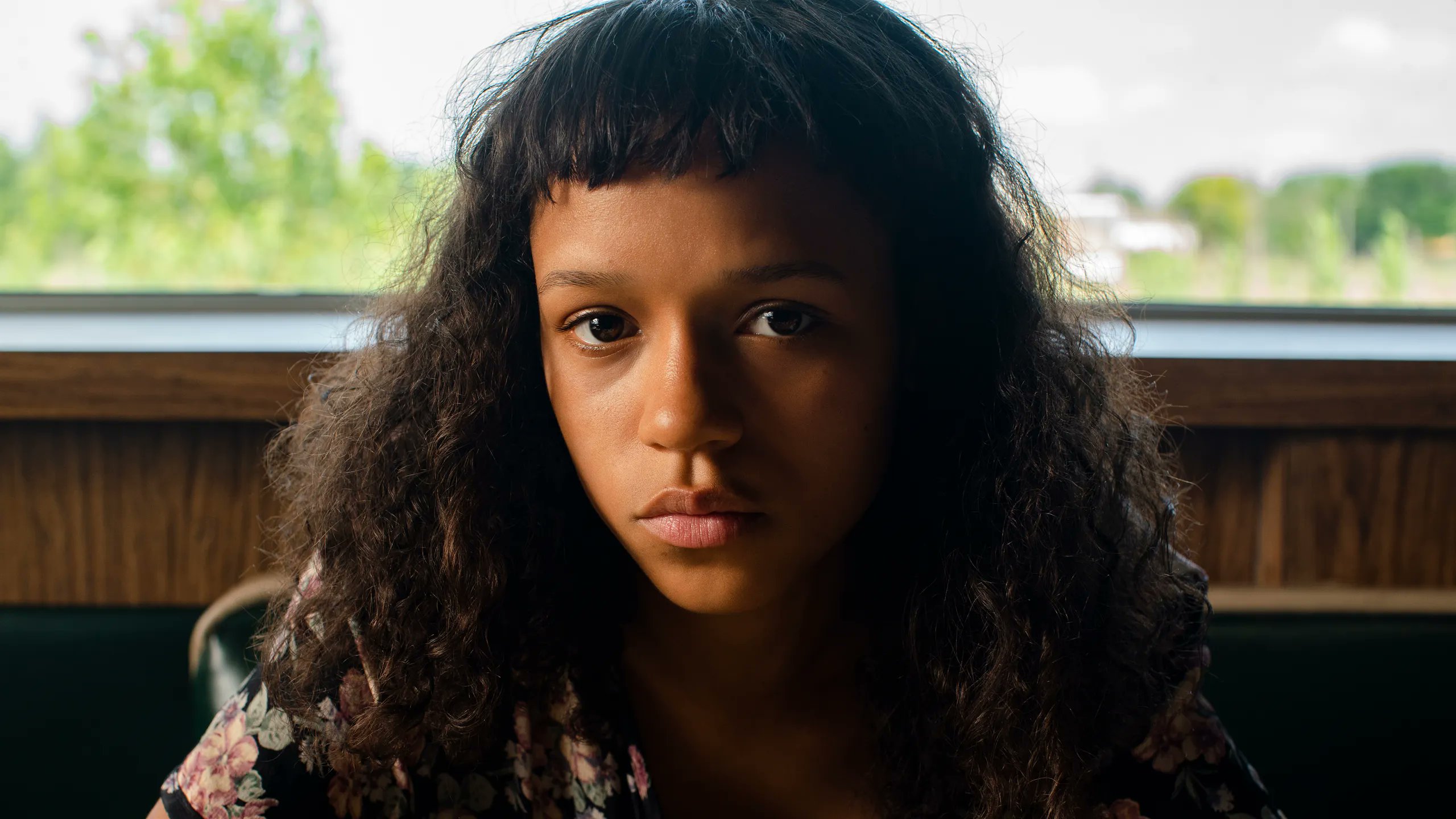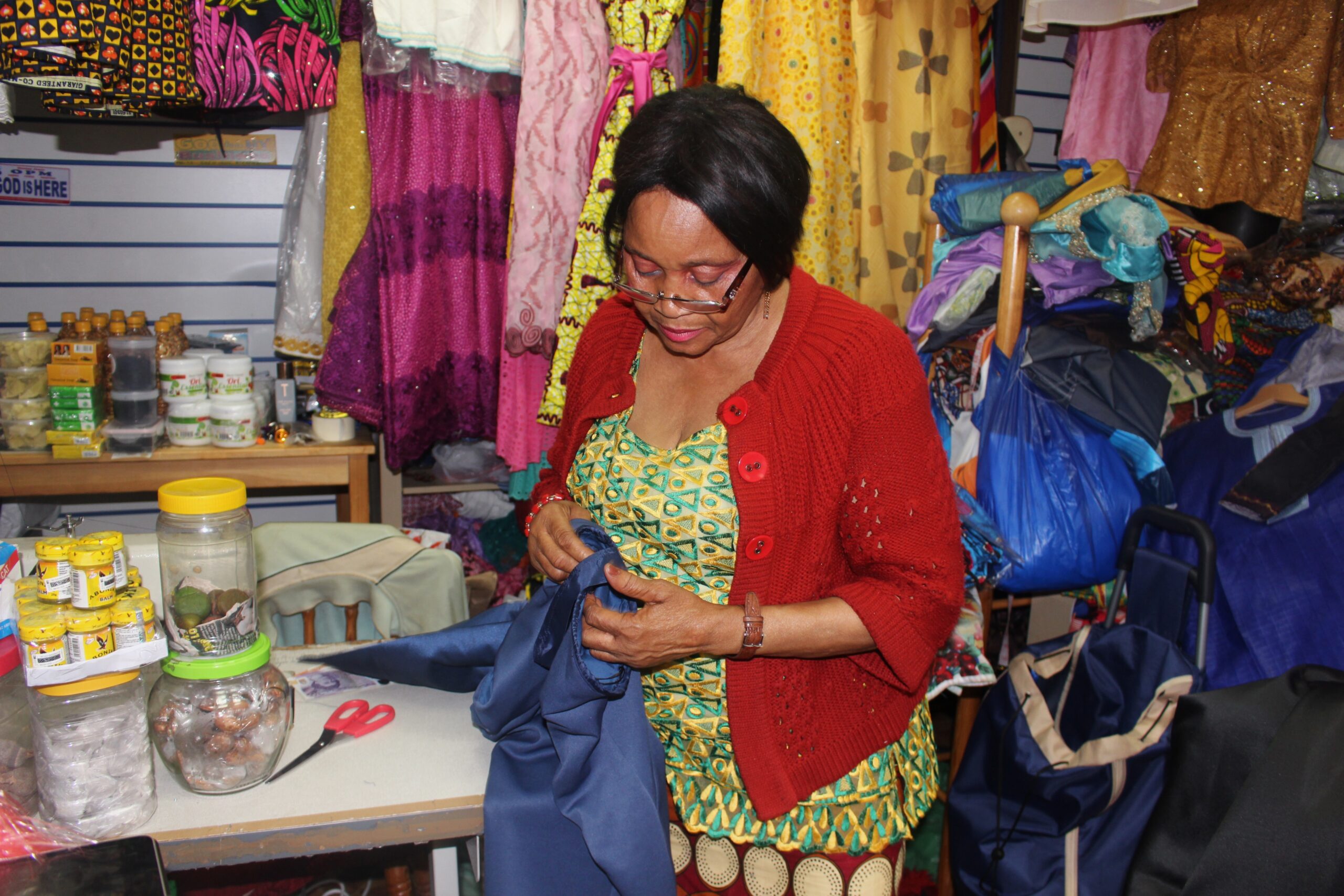
How memes breathed new life into Nollywood
You'll have seen the memes, but the resurgence of Nollywood in the online sphere is having real-world implications for Nigerian film, music, fashion and art.
Adedoyin Adeniji
08 Jan 2020
Courtesy of YungNollywood
Memes from Nollywood, Nigeria’s extremely prolific film industry, are awash on the internet today. Thanks to the work of archivists like Nollybabes, YungNollywood and others, the faces of Nollywood veterans like Osita Iheme, Chinedu Ikedizie, Genevieve Nnaji, Funke Akindele and Rita Dominic lurk around every corner of social media. For many millennial and Gen Z Africans in particular, these dark humour memes perfectly encapsulate our everyday experiences and are helping to create our own unique pop-culture.
The importance of memes in today’s culture can’t be understated. Memes can support political action, update public discourse, spread information, and help to define identity via an in-group who gets it and outsiders who don’t. Globalisation (and digitisation) is helping to create an interconnected world but just as it is helpful in helping to create a world without boundaries, there is also fear of a loss of cultural identity. Worldwide recognition of American pop culture aids its dominance – this is why establishing the nuances and peculiarities of the world around you (even through memes) matters.
The virality of these clips is particularly interesting because of how Nigerian the clips of them are. Think of the unmistakable accent in the “WHY ARE YOU RUNNING?” clip from the 2014 Tchidi Chikere comedy, Pretty Liars, which gained notoriety in the Vine age. The humour, the drama.
Videos from Aki & Pawpaw, starring Chinedu Ikedizie and Osita Iheme are frequently shared. While people may not understand the contexts of these hyperbolic reactions or cultural impact of these men – they are still often erroneously referred to as little boys by non-Africans who share their memes despite being 37 and 42 respectively – their reactions are understood and this is what makes art a universal yet necessary cultural language.
Ironically, the overdramatisation and overacting that Nollywood is often mocked for is what makes these old Nollywood memes even better. These films have been accused of lacking the sophistication and finesse that movie industries like Hollywood have. Though the plots may be poor and the production quality low all of the themes present, like misogyny, religious fanaticism in Old Nollywood are still culturally relevant.
Nollywood, which has over 1500 movie releases per year, is no stranger to criticism or ridicule. It has previously been criticised at doing a poor job of establishing Nigerian pop-culture identity. Scholars claim the industry has failed to “carve-out” the narrative of Nigerian cinema as its counterparts Hollywood and Bollywood have done with the American dream and the Indian love story respectively. One school of thought could say that this is because a Nigerian identity may be hard to conceptualise in a country still reeling from the effects of colonisation. Yet somehow what is Nigerian is understood by Nigerians, Africans and those who interact with the culture beyond superficial engagement.
What marks Nigerian cinema out as distinct is that the narrative is usually a cautionary tale about “societal ills” like greed, adultery, witchcraft and “diabolical dealings”. It has a unique aesthetic aided by the costumes of the characters which mixes the traditions of the different Nigerian ethnicities and Western fashion. The outdoor shots showcase Nigerian architecture and the landscape and interiors provide a backdrop for romance, comedy and dramedy. There is complexity in Nigerian-ness and our movies and art reveals this.
Digital archivists are contributing to the Nigerian pop culture identity while the world labours under misapprehensions about Africa as a continent. Accounts like @estatefevercomedy are cutting old Nollywood clips, watermarking and resharing videos that display various aspects of Nigerian life. Similarly, the video clippings shared by Nollybabes are a result of time spent scouring YouTube for old Nigerian shows. Feminist favourite YungNollywood usually uses screenshots of “deviant” women from old Nollywood with their additional feminist commentary. What these pages have in common is Nollywood and a Nigerian swag.
“These memes are not only cultural markers, they are also an art in and of themselves”
The popularity of these pages have led others, Nigerians and non-Nigerians alike, to discover the viral gem that is old Nollywood content. Last November, writer and #SaggyBoobsMatter founder, Slumflower, announced her latest venture, Instagram page Patriarchy’s Worst Nightmare, using memes in the style of Nollybabes and YungNollywood. NollywoodRoll has been credited as being largely responsible for the spread of old Nollywood memes of Aki and Pawpaw. It is run by Nicole, a Brazilian woman who admitted to Vulture that she was shocked at how fast the clips took off.
Memes are encouraging a newer generation to explore Nigeria’s history via Old Nollywood movies and sparking a cultural movement that goes far beyond social media. These memes are not only cultural markers, they are also an art in and of themselves. Old Nollywood’s influence is present in the works of musicians like Lady Donli. Her recent album Enjoy Your Life samples Mumma Gee/Patience Ozokwor’s single ‘National Moi-Moi’ which critiqued the Nigerian government’s greed and corruption. Odunsi’s single ‘Wetin Dey’ is inspired by 00s favourite TV Series Wetin Dey. Nigerian-British designer Mowalola’s collaboration with Now Gallery in London has elements of Old Nollywood all over the art. The designer told Cultured Magazine that the exhibition was inspired by nostalgia from her Nigerian upbringing.
Elsewhere, artist Oroma Elewa created Area Babes & Ashawo Superstars (after the widely favourable reception of her Nollywood inspired memes posted to her personal stories) and garnered thousands of followers in just a few days. An exhibition of Area Babes & Ashawo Superstars is now showing as a part of Le18 Gallery’s DabaPhoto5 exhibition in Marrakech.
Archiving Nollywood is no easy feat. The Nigerian Film Corporation, established in 1979, has been largely responsible for archiving Nigerian films., However, due to lack of funding, poor record keeping, and the medium in which they were originally shot, this task can be daunting. Additionally, the West’s pop cultural dominance and influence was significantly higher in Nollywood of the early 00s and so many Old Nollywood movies took cinematic liberties that infringe on current copyright laws of the digital platforms, like YouTube for instance, where these movies are shared – leading to them having to being altered before they can be archived digitally. But this removes important contexts in some of these movies.
Yet rebooting Nollywood with newer and bolder projects that speaks to this new audience does not come without limitations. In order to remain accessible via language, Nollywood movie producers must make certain compromises. In 2018’s A Companion to African Cinema, it’s explained how increasing demand for digital access to movies, has caused “language conformity” by filmmakers so as to remain searchable and mobile. They say, referring to the loss of Yoruba accents in Funke Akindele’s critically-acclaimed Jenifaon digital platforms, that “it has shed these thematically relevant diacritics – a consequence of some of the main demands of the digital age, which, in the name of contents’ ‘accessibility’ and ‘spreadability’ enforce normative English even as the internet is touted as a global uniquely inclusive medium.”
This conundrum faced by those invested in Nollywood was recently reaffirmed when Lionheart, Netflix’s first original Nigerian film, was disqualified from the Academy’s Best International Film category for being “too English”. The decision stood in stark contrast to an overwhelmingly positive reception in the country for what was seen as proudly Igbotic and Nigerian upon release. The dismissal of Lionheart pointed to the gatekeeping of non-Western art and demonstrated the challenges of trying to take Nigerian cinema global. Despite what a “cultural melting pot” social media sites like Twitter or Instagram may be, Nollywood still faces a battle against Western ideals on its path to procuring a global audience.
Despite these limitations, Nollywood archivists are expanding their brands and committed to helping to preserve the culture. This past December, Nollybabes curated a Nollywood themed event with Nigerian concept store Alara. Late last year, YungNollywood released some Old Nollywood inspired pieces including a cute customisable bra and hilarious meme mugs. Their growing brands show that there is an appreciation for the content they are creating. The meme-ification of Nollywood is helping to spread Nollywood’s history and also generating a new cultural movement. It is consolidating “Nigerian culture” and boosting a demand for more distinctly Nigerian art.









